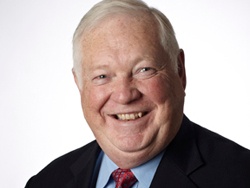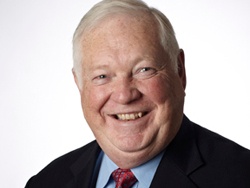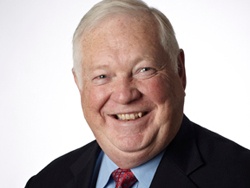


A blind spot, when driving a car, means your mirrors don’t give you a complete picture of what’s behind and beside you. In business and in life, a blind spot means we don’t look at each situation from all perspectives.
Thinking clearly involves two things: focus and clarity. Focus says, “Do I pay attention to it?” Clarity says, “How well do I understand it?” To understand how we think, we need to apply the value science of axiology. Just as we have five senses that monitor our physical world, we have six thinking modules which guide our mental world. As the senses are independent from one another – only the nose can smell, only the tongue can taste, only the eyes can see – so too, each of the thinking modules is independent.
Most blind spots come about because we don’t take the time to think at all – we just respond and react. When we do this, we don’t allow all perspectives to come online in the thought process and we may lose valuable insights.
For example, you’re late for a Tuesday evening meeting and you have a made a point of telling people over and over again that being late is a sign of disrespect. As you’re leaving, your 12-year-old Chris says, “I know we have a rule about not going out on school nights, but my best friend Pat really needs me to stay over tonight. It’s really important. Please make an exception.” You’re late for your meeting and your child is making a request for an exception when you’re on the way out the door. What is your response?
In my seminars, the response, more than 90 percent of the time, is: “I wish you’d asked about this sooner. I’m late for a meeting. We have rules for a reason. I’m sorry but the answer is no."
Later you get home and Chris has been crying. Pat’s parents are going through a divorce. Pat’s mom is devastated; Pat didn’t know what to do and wanted Chris’ moral support. Here’s the question – is your relationship with your child better or worse for having handled it the way that you did? Most people think it’s probably worse.
Part of it revolves around not taking the time to listen. After listening, the decision may have been the same. You may not feel this is a safe environment. You may not know the family. But you will have listened and been able to provide reasons for your decision. You might have even taken your child over when you got back from the meeting to be there together for a period of time.
Why did we respond the way we did? It’s based on how we think.
Three of the thinking modules examine our external world:
Intuition and Empathy represented by the Care Bear. This module focuses on our thinking about others as unique, one-of-a-kind persons who have value just because they are, apart from what they do.
Practical Thinking represented by the Dolphin. What does it take to do something? How well does something work?
Structured Thinking represented by the Beaver. What are the plans, the standards, and the rules to be followed?
With our decision about Chris and Pat, the Beaver overruled the Care Bear. With little time to think and because we focused on rules, the Care Bear was overruled – without any conversation.
We see the same thing in organizations when people interview and hire Dr. Jekyll and then wonder how Mr. Hyde showed up. If we focused on the thinking behind the behavior, we would make better choices. Our application of axiology allows us to work with clients to make better hiring decisions and improve team performance. For example, one group of auto dealers reduced turnover by more than 60 percent in one year with an annual savings of $27 million dollars by making better hiring decisions. And improving team performance isn’t in setting performance goals and formal performance evaluation, but in performance coaching. Differences in thinking can be resolved; personality conflicts can’t.
Then there are the three ways we view ourselves:
Inner Self represented by the Owl. To what extent do I value myself as a unique individual because I am, and not by what I do?
Outer Self represented by the Cat. How do I value myself because I fulfill my roles?
Self Concept represented by the Camel. How do I value myself based on following the rules and expectations set by others?
If we are deliberate, we can bring all of these perspectives into balance. When we are not deliberate, we tend to lose at least three or four of these perspectives and let the other two dominate. Not the best way to make decisions – or build strong relationships! However we can change that when we know our blind spots – because we can take action to eliminate them.
Don't miss out on updates and chances
to sharpen your skills with participant-centered learning.




3740 N Chestnut St #113 - Chaska, MN 55318-3053